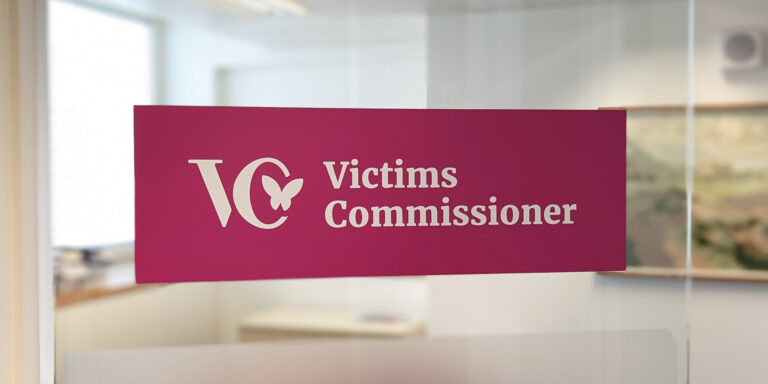Victim rights vs. victim realities — what the Operation Soteria surveys tell us

Professor Katrin Hohl reflects on the largest survey of rape and sexual assault survivors of police forces in England and Wales.
Looking at key findings from the Soteria victim surveys, this guest blog highlights the deeply concerning gap between the rights promised to victims on paper and their reality in practice. The Victims’ Code broadly covers what victims tell us they need – but are not seeing these rights translated into action. This underscores the need for systematic measurement of victim-survivor experiences.
How do we know whether sexual violence victims are treated appropriately by police? How can we tell if they are afforded their victim rights? These questions are critical for assessing and improving how police and the wider criminal justice system respond to sexual violence.
While individual stories regularly make headlines, systematic data collection and analysis are rare. The Operation Soteria survey of nearly 5,000 sexual violence victim-survivors between 2023 and June 2024 provides vital insight into these questions. This month, we published the findings from the final year of the survey. The survey offers an unprecedented picture of the gap between victim rights on paper and in lived experience, establishing a baseline for measuring police performance beyond justice outcomes (i.e., prosecutions and convictions).
The Victims’ Code of Practice sets out twelve fundamental rights all victims of crime have from the moment they engage with the justice system. At the most basic level, every victim has the right to be kept informed about their case. According to the survey’s findings, only 33% of respondents felt police consistently contacted them or explained case developments clearly.
Victims also have the right to understand and be understood. In practice, only 38% felt officers always or mostly explained things well, less than half (45%) felt listened to and only 27% felt that their officer(s) understood what this was like for them.
Importantly, victim rights apply to all victims. Yet, victim-survivors from Black and minoritised-ethnic backgrounds, Disabled victims, and those with neurodivergent or mental health conditions tend to report significantly worse police experiences.
Awareness of victim rights is a necessary (if on its own insufficient) step to empowering victims to exercise their legal rights.
The Victim Right to Review (VRR), for example, is an important protection, allowing victims to challenge police or Crown Prosecution Service (CPS) decisions if they decide not to bring criminal charges against the suspect(s). The survey reveals that more than 55% of survivors to whom the scheme might have been relevant did not know about it.
However, there are some signs of improvement. While only 27% of respondents who reported before 2021 say police told them about victim rights, this rose to 45% in early 2023 (declining to 39% in 2024). Before 2021, only 45% of respondents said police referred them to support – another right under the Victims’ Code. This figure rose to 67% in early 2023 (62% in 2024). Victims must know about their right to challenge the police or CPS when they aren’t met. This finding suggests more needs to be done to raise awareness of the Victims’ Code.
Critically, the survey reveals that victim rights themselves are not the issue. The findings suggest that what victim-survivors want and need in their encounters with the police is broadly covered by the Victims’ Code.* The crux are implementation and accountability.
This brings us back to the question: how do we know if victims are getting what they are entitled to under the law?
The Operation Soteria survey provides a model for the systematic measurement of victim-survivor experiences. However, one-off academic studies like this one are not enough. What is needed is regular, systematic data collection combined with an effective oversight mechanism to ensure these victim rights are met in practice, for all victims.
Only through consistent measurement, transparent reporting, and clear accountability can we transform the Victims’ Code from a set of aspirational rights into guaranteed standards of care for every survivor.
* With the caveat that the survey only includes adults aged 18 and over, and due to the survey method is not to be taken as representative of all rape and sexual victim-survivors.
Katrin Hohl OBE is a Professor at City St George’s, University of London and the Independent Advisor to the UK government on Criminal Justice Responses to Sexual Violence. She is also a member of the Victims’ Commissioner’s Advisory Group.
This guest blog is part of an ongoing series, published on the Victims’ Commissioner’s website during the 16 Days of Activism.
Read the Victims’ Commissioner’s first blog in this series
Halving violence against women and girls is both an urgent and commendable challenge. To drive lasting progress, the government must craft a strategy that is grounded in the real, lived experiences of victims — who demand profound and meaningful change.
Published on November 25, 2024
Read the blog